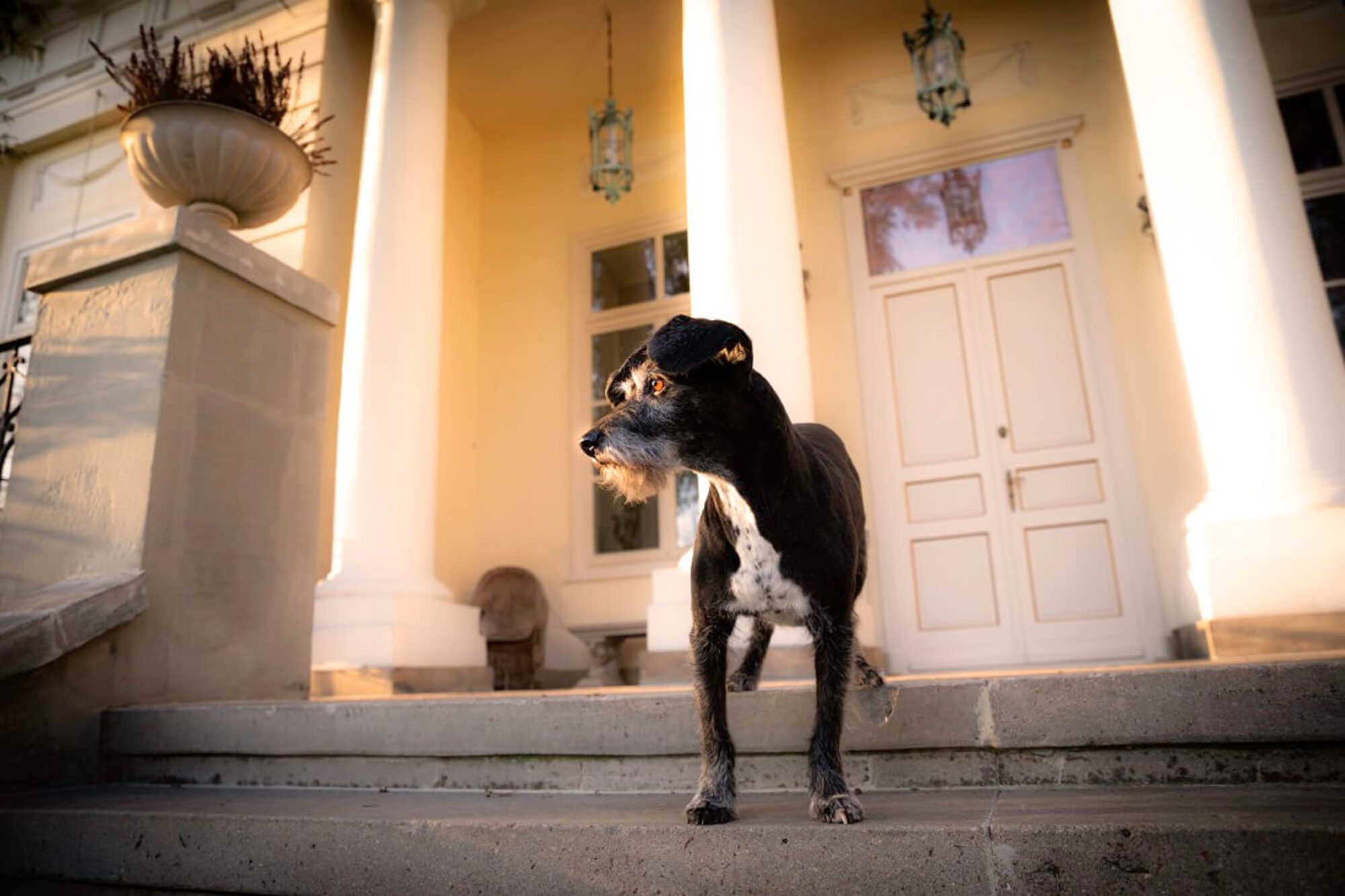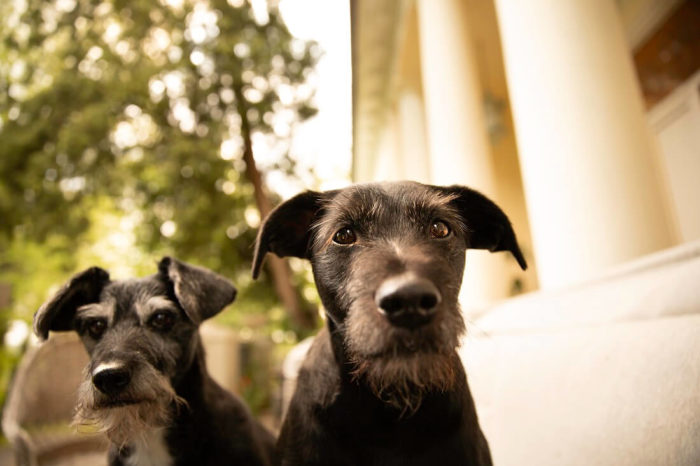How to choose a good dog trainer? What you need to know?
More and more dog handlers decide to start training. When the decision to “go to training” is made, there is still a very important issue of choosing the trainer. This turns out to be quite a challenge. There are hundreds of schools, instructors, coaches on the Internet … but how to choose the right one? How to choose a good dog trainer, and above all what does it mean to be a good trainer?
Read what you should consider when making this important (for you and your dog!) decision.
Time for training! But how to choose a good dog trainer?
A good trainer is a person who has the knowledge and is able to use it. His work with animals is based on a scientific basis, not on common knowledge or stereotypes. In the work of a trainer, you do not need a sixth sense or a hand to animals, but you do need knowledge that has its roots in the behavior analysis and ethology. We should look for a person who is constantly developing and training, is up to date with scientific knowledge, and has clear ethical standards. What to pay special attention to before choosing a teacher for us and the dog?
Work ethic
We must remember that efficiency cannot be the only criterion for working with animals. The trainer should work with effective methods, but possibly the least aversive and intrusive. Tools such as prong collars, electric collars, halters, and choke chains should not be used in training. There are many alternative methods to achieve the desired results while treating your dog with respect and allowing training to become a dialogue. Therefore, look for trainers who base their work on positive reinforcement and modification of the environment, and not on punishment or extinction.
Our priority should be to meet the biological needs of the dog. We cannot, at the expense of our convenience, deprive the animal of the right to implement species behavior. It should be remembered that the dog as a species has its own instinctive needs and behavior.
Each dog must be able to:
– go for daily walks,
– discovering new places,
– getting to know the environment,
– rest,
– eating and drinking,
– taking care of physiological needs,
– contact with other animals,
– attention and care of the caregiver.
Trainer’s Knowledge
Unfortunately, the profession of a trainer is not regulated in any way, anyone can become a trainer, behaviorist (the name does not matter here) and write out a certificate himself. After a one-day seminar, a lot of people add the profession: trainer/behaviorist to their CV.
It is worth verifying where the specialist was educated, whether they were one-day or weekend courses or extensive programs with final exams. Another important issue is whether your trainer is constantly deepening his knowledge, going to conferences and seminars.
The trainer must have knowledge of learning processes, behavior modification, communication, ethology … Regardless of whether it comes to teaching the dog to walk on a loose leash, training nosework or solves a behavior problem (e.g. aggression).
A good dog trainer does not look for the cause of behavior in relation to metaphysics. Dog reactions do not happen without a reason, and the statement that “the dog is hyperactive” or “the dog is shy” will not change anything later in the work. Our teacher has to find out what this hyperactivity or withdrawal looks like – what these behaviors are, what their function is and in what situation they arise. No behavior occurs in a vacuum and the role of the trainer is to both describe the problem (based on the description of observable behaviors), define the conditions in which this behavior occurs, and indicate the function of the behavior (what makes the behavior appear more or less often). Then create a behavior modification plan. The caregiver should remember that we do not teach lack of behavior and we can’t “unlearn” behavior. If the dog jumps at the visitors, instead of thinking about how to “unlearn” it, focus on what behavior to teach instead of jumping.
Working methods
The trainer is the teacher. He must be able to explain the work plan to the student in a comprehensible and clear manner. There is no room for “you have to feel it”, “see for yourself”. At the beginning of the cooperation, both sides should define expectations and set priorities. However, you should remember that there are no magic solutions or shortcuts in working with animals, so you can put all “guarantees of effectiveness during the training week” between fairy tales. Similarly, group training is not ideal for every dog. I am definitely a supporter of individual classes that will focus on a given dog and guide, and only when necessary will other teams join them. That’s where online training has an amazing advantage.
Every owner knows that his dog is absolutely unique. This also works for training dogs. Every animal is different and how it behaves and feels includes:
– genetics (but we have no influence on it anymore),
– history of reinforcements and punishments that make up our relationship with the dog.
A good dog trainer will help us make this relationship good
A good relationship is the story of the positive reinforcements we experienced with the dog and the dog with us. Confidence (based on this story) that the other party’s behavior will be consistent, predictable, and positive. Through the history of positive reinforcements, we create some kind of rules, an unwritten contract is created, the violation of which affects mutual trust.
A relationship does not arise immediately, it arises through the passage of time and events that take place with a given person or dog. It is a series of positive reinforcements that shape our behavior.
A bad relationship is a story of negative reinforcements and punishments that we experienced with a given dog or person. It is a lack of trust, often meaning lack of predictability in behavior, the use of penalties or negative reinforcements.
Relationships can be changed, although history cannot be erased. That is why it is always worth analyzing our behavior towards dogs and considering whether they are not damaging our relationship. Its reconstruction is not easy, and as we all know, a relationship is essential for work, because without trust it is hard to achieve common goals.
Work with a caregiver
Training dogs is primarily work with their caregivers, who very often act as students and teachers. The trainer’s task is to teach the owner, first of all, so that he can work with his dog. Just as playing a few tennis matches (without many years of practice) will not make us good players, the same lack of practice in working with dogs will simply prevent us from training. Practical skills are something we cannot replace with theory. And before you start working with the dog, the trainer should make sure that you practice timing, reflexes, mechanics (also without the dog!). The tennis player spends a lot of time on the racket grasping technique before hitting the ball. Therefore, during the first conversation with the trainer, it is worth asking what plans he has for your education.
Once you have verified the information about the dog’s trainer, it is worth going to the classes as an observer – without a dog. This will allow you to assess whether you want to cooperate with this specialist. Remember that once you go to classes with your dog, you can always refuse to perform an exercise and ask about other options.
Training is a process that (well planned) will be a great pleasure for the dog and his caregiver. Just as we learn throughout our lives, so do dogs. Choosing a good trainer will make this joint adventure an unforgettable experience that will deepen your relationship with your dog.
See also other posts:
June 30, 2023
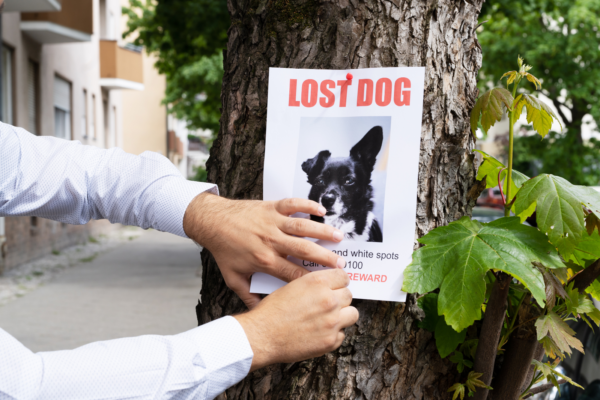
Get Your Lost Dog Back Home Quickly: Follow These 12 Tips for Success
Vacations favor more frequent and longer walks with our furry friends. We travel, visit new places. Summer makes us loosen our brakes and allow our…
June 30, 2023
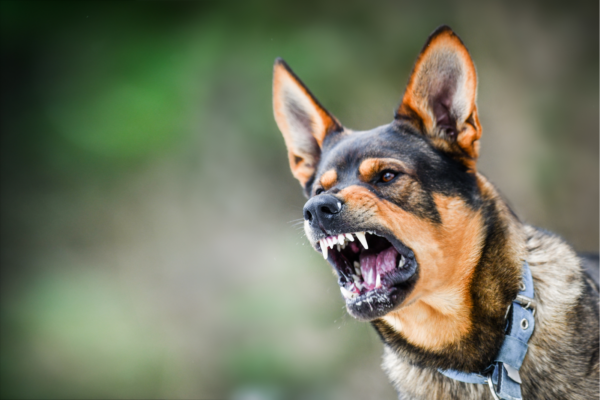
Managing Aggressive Dog Behavior: Tips for Peaceful Living
Living with an aggressive dog may seem challenging, but it can be peaceful and manageable with the right approach. One key aspect is to remain…
June 30, 2023
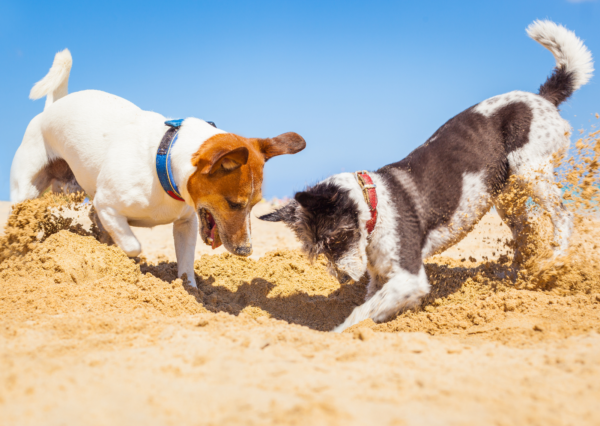
Unlocking the Secret to Successful Puppy Socialization: Quality over Quantity
Today, although the topic is very important, I will keep it brief. Socialization is a topic that could fill books or scientific papers. However, today…

